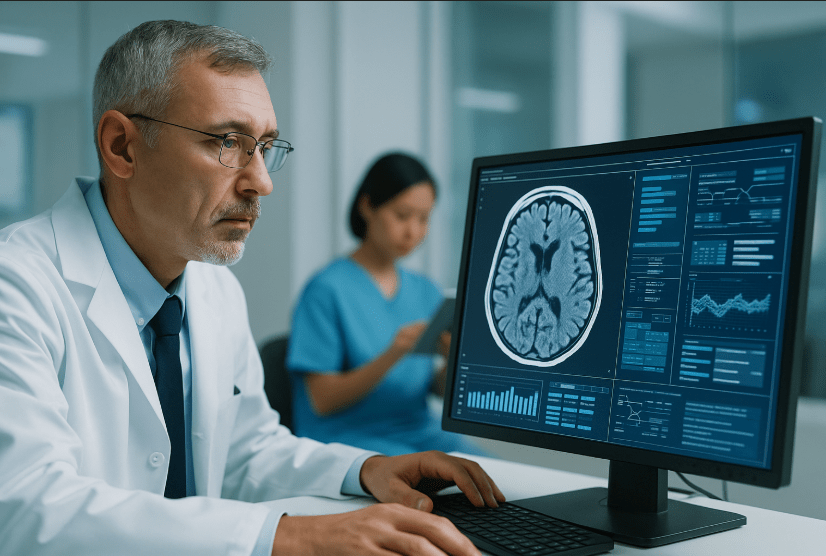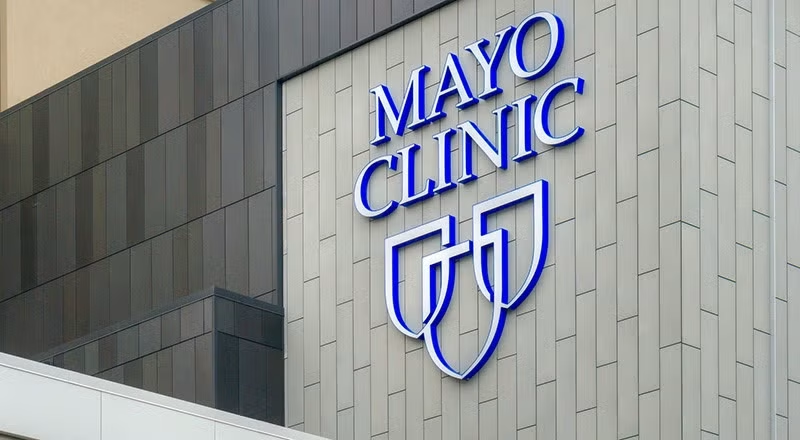Case Study: Mayo Clinic and Google Cloud – Transforming Healthcare with AI
Artificial Intelligence (AI) is revolutionizing healthcare, and one of the most compelling examples comes from the partnership between Mayo Clinic and Google Cloud. This in-depth case study explores how the two organizations collaborated to build AI-powered systems that streamline diagnostics, enhance clinical decision-making, and improve patient outcomes across complex healthcare environments.

Why Mayo Clinic Partnered with Google Cloud
Mayo Clinic is one of the most trusted healthcare institutions globally, renowned for its innovation and quality of care. As patient data volumes surged and diagnostic needs became increasingly complex, Mayo recognized the urgent need for scalable AI infrastructure. The goal was clear: use artificial intelligence to accelerate diagnostics, reduce clinician burden, and enhance precision medicine.
To achieve this, Mayo formed a strategic, multi-year partnership with Google Cloud, combining Google’s AI and cloud expertise with Mayo’s deep clinical knowledge and patient care mission.
Project Objectives
-
Improve diagnostic speed and accuracy in radiology and oncology
-
Streamline clinical workflows using AI tools embedded in EMR systems
-
Enable real-time predictive analytics for risk management and early interventions
-
Support large-scale research and AI model development on secure cloud infrastructure
Technologies Deployed
The project leveraged a powerful combination of Google’s cloud and AI offerings:
-
Google Cloud Healthcare API – for standardized access to EHR and imaging data
-
Vertex AI – for building and deploying ML models
-
BigQuery & Cloud Storage – for managing large-scale structured and unstructured healthcare data
-
AutoML Vision & Natural Language AI – for imaging analysis and clinical text mining
-
HIPAA-compliant cloud architecture – to ensure data privacy and security
Implementation Phases
1. Data Aggregation and Integration
Mayo Clinic first consolidated massive volumes of medical imaging, pathology reports, lab results, and clinical notes into Google Cloud’s secure infrastructure. This enabled a unified data foundation to train AI models and build real-time analytics.
2. AI Model Development and Training
Using Vertex AI, Mayo’s data science teams trained machine learning models to:
-
Detect lung nodules, brain bleeds, and tumors in CT and MRI scans
-
Analyze histopathology slides for cancer classification
-
Extract insights from physician notes using natural language processing (NLP)
These AI models were integrated into clinical workflows and made accessible to radiologists, oncologists, and general practitioners.
3. Real-Time Clinical Decision Support
AI models were connected to electronic health record (EHR) systems to assist physicians during patient consultations. These tools provided early warnings for patient deterioration and flagged key risks such as hospital readmission, sepsis, or adverse drug reactions.
4. Deployment for Research and Expansion
The infrastructure also enabled large-scale clinical research and collaborative model training across Mayo’s global network. Researchers could now test hypotheses on anonymized datasets with AI-assisted precision.
Measurable Results and Impact
| Metric | Outcome |
|---|---|
| Diagnostic Time | Reduced by 30% for radiology cases using AI-based prioritization |
| Cancer Detection | AI models increased early detection rates in lung and breast cancer imaging |
| Emergency Escalations | Reduced by 20% through predictive analytics and early intervention alerts |
| AI Model Training Speed | Cut training time by 50% using Vertex AI and BigQuery |
| Clinician Satisfaction | Improved due to faster workflows and decision support tools |
Strategic Significance
This collaboration demonstrates how AI can augment—not replace—healthcare professionals. By giving doctors and radiologists powerful tools to analyze data faster and more accurately, AI allows for more timely decisions, better patient outcomes, and reduced burnout among medical staff.
Moreover, the scalable, cloud-first approach makes the system easily deployable in other healthcare environments, including rural clinics, academic hospitals, and telehealth platforms.
Expert Insight
“This partnership is about bringing digital innovation to clinical practice in a way that empowers clinicians and enhances patient care. It’s not just about AI—it’s about a smarter healthcare ecosystem.” — Dr. John Halamka, President, Mayo Clinic Platform
Key Takeaways
-
AI + Cloud is a powerful combination for modernizing healthcare delivery.
-
Healthcare institutions benefit most from domain-specific AI tools tailored to clinical workflows.
-
Strategic partnerships (like Mayo + Google) are essential to driving safe and scalable AI adoption.
-
Measurable gains in diagnostic speed, clinical accuracy, and operational efficiency are achievable when AI is correctly implemented.
Future Outlook
Mayo Clinic plans to expand this AI deployment into cardiology, pathology, and genomics. Google Cloud will continue to support model scalability, multi-site integration, and automated compliance features. As these solutions mature, other healthcare systems worldwide are expected to replicate this model—potentially transforming global health outcomes through AI.
Discover Data-Driven Growth Opportunities — Book Your Consultation
- Case Study: SABIC – Predictive Maintenance and AI-Driven Operational Excellence - August 19, 2025
- Case Study: BASF – AI-Driven Material Discovery - August 19, 2025
- Artificial Intelligence in Chemicals Market to Surpass USD 28 Billion by 2034 as Digital Twins and Sustainability Drive Transformation - August 19, 2025

